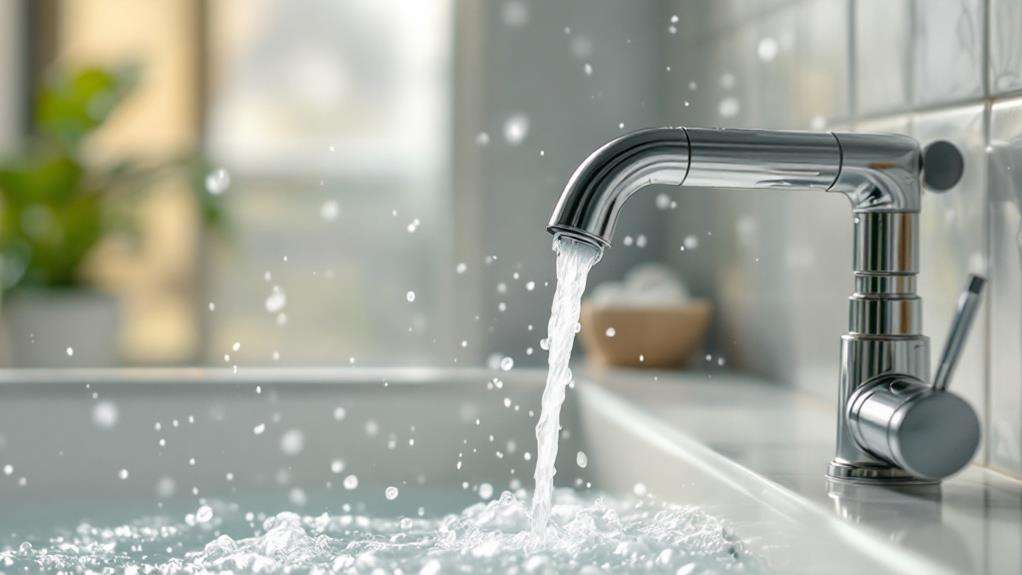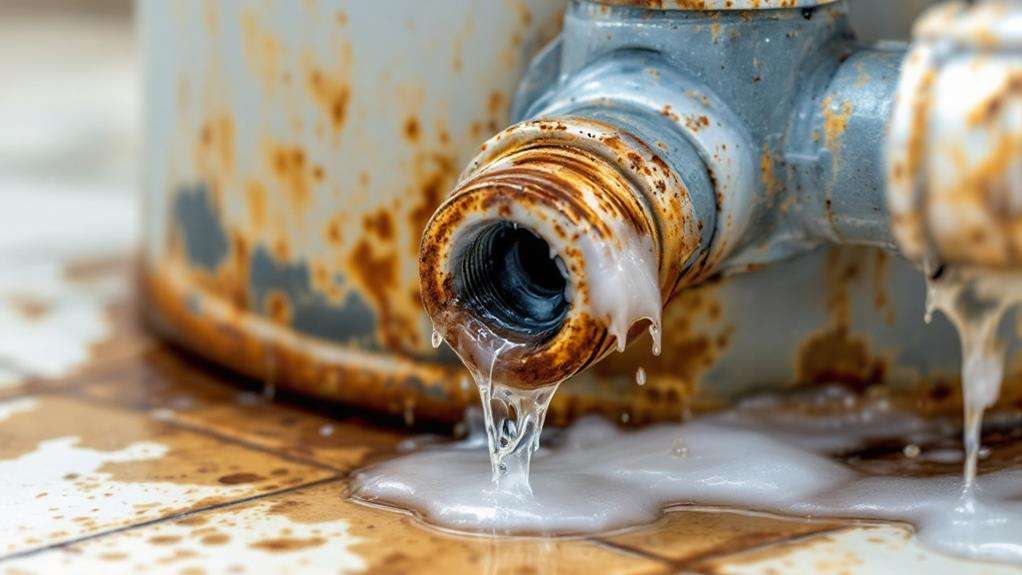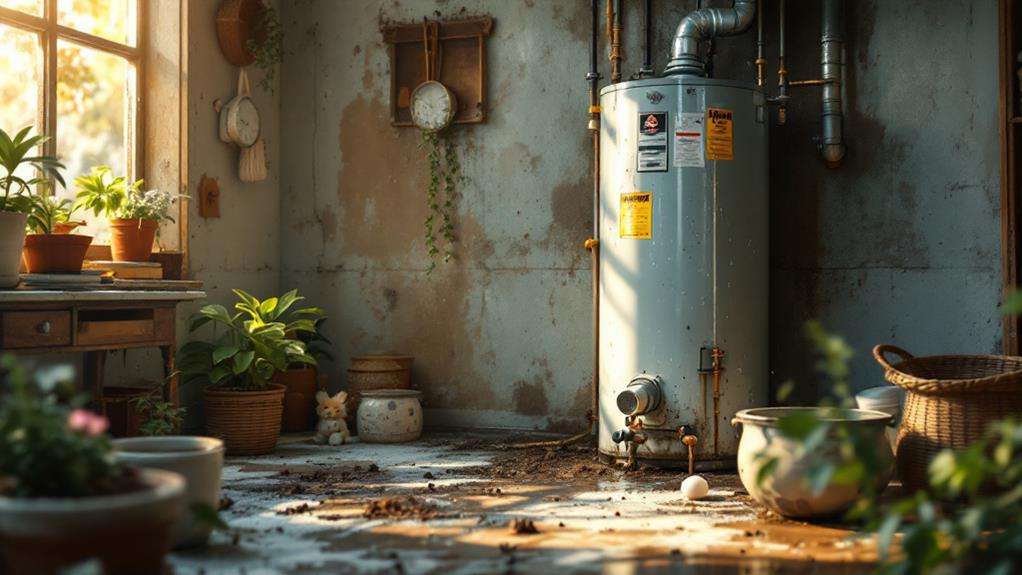Top Signs It’s Time to Replace Your Water Heater
Your water heater's age, rust, inconsistent hot water, strange noises, decreased efficiency, leaks, and changing household needs are all signs it's time to replace your aging unit. Most water heaters last 8-12 years, but issues like mineral buildup and corrosion can cause problems sooner. Don't wait for a complete breakdown - proactively replacing your water heater can help you avoid the hassle and expense of sudden failures. Keep reading to learn more about the top signs it's time to upgrade your home's water heating system.
Key Takeaways
- If the water heater is over 10 years old, it may be nearing the end of its lifespan and should be considered for replacement.
- Visible rust or corrosion on the tank indicates compromised integrity, requiring immediate replacement to prevent water damage.
- Inconsistent hot water supply, strange noises, or unpleasant odors can signify underlying issues that warrant water heater replacement.
- Decreased heating efficiency, leading to longer heating times and higher energy costs, is a sign the water heater needs upgrading.
- Persistent leaks or water damage are clear indications that the water heater has reached the end of its useful life and should be replaced.
Age of the Water Heater
After several years of reliable service, the age of your water heater is a critical factor to consider when deciding whether to replace it. Most water heaters have an average lifespan of 8 to 12 years, but this can vary depending on usage and maintenance. As your heater ages, it's more susceptible to mineral buildup, which can reduce its efficiency and even lead to tank failure. Additionally, your tank capacity may no longer meet your household's hot water demands, leading to frequent shortages or the need for more frequent tank refills. When your water heater reaches the 10-year mark, it's generally a good idea to start planning for a replacement, even if it's still functioning. By replacing your aging heater, you can ensure reliable hot water supply and potentially save on energy costs with a more efficient model.
Rusty or Corroded Tank
If you notice rust or corrosion on your water heater's tank, it's a clear sign that replacement is necessary. Rust and corrosion indicate that the tank's integrity has been compromised, and it's only a matter of time before it fails completely. This can lead to discolored water, sediment buildup, and even water leaks, all of which can cause damage to your home.
The internal lining of the tank is designed to prevent rust and corrosion, but over time, this lining can break down, allowing the metal to be exposed to the water. If left unaddressed, the problem will only worsen, leading to a higher risk of water damage and the potential for the tank to burst, causing a costly and inconvenient emergency. Don't wait until it's too late – if you notice any signs of rust or corrosion, it's time to start planning for a water heater replacement.
Inconsistent Hot Water Supply

Another sign that your water heater may need replacement is an inconsistent hot water supply. If you've noticed that the hot water seems to run out more quickly than it used to, or that the temperature of the water fluctuates from hot to cold, it could be a sign of an underlying problem with your water heater. This could be due to unusual sediment buildup inside the tank, which can block the flow of hot water and prevent the heater from maintaining a consistent temperature. It could also be a result of insufficient insulation, which allows heat to escape from the tank, making it harder for the water heater to maintain a stable hot water supply. If you're dealing with these issues, it's a good indication that it's time to consider replacing your water heater to ensure a reliable and consistent hot water source for your home.
Strange Noises or Odors
Strange noises or unusual odors emitting from your water heater can also signify the need for replacement. If you start hearing rumbling, popping, or other strange sounds, it could be a sign of mineral buildup inside the tank. This can lead to decreased efficiency and even potential leaks. Additionally, if you notice discolored water or a metallic taste, it might be a result of the tank's deterioration. These issues can not only affect the performance of your water heater but also pose health risks if left unchecked. Don't ignore these warning signs - they're clear indications that it's time to consider replacing your aging water heater to ensure reliable and safe hot water supply for your home.
Decreased Water Heating Efficiency

A clear sign that your water heater needs replacement is decreased efficiency. Over time, mineral buildup can accumulate at the bottom of the tank, reducing the heater's ability to effectively transfer heat to the water. This results in longer heating times and higher energy consumption, significantly impacting your utility bills.
Additionally, if your water heater is several years old, it may be utilizing outdated technology that is less efficient compared to newer, more advanced models. Advancements in water heater design and materials have led to significant improvements in energy efficiency, allowing you to save money on your energy costs.
When your water heater struggles to maintain the desired temperature or takes longer to heat the water, it's a clear indication that it's time to consider a replacement. Upgrading to a more efficient model can not only improve your home's comfort but also contribute to long-term cost savings.
Leaks and Water Damage
Leaks and water damage are another clear sign that it may be time to replace your water heater. As your water heater ages, mineral buildup and corrosion can cause small cracks and holes to develop, leading to leaks. You may notice discolored water or puddles around the unit, indicating a leak. These leaks can not only damage the area surrounding the water heater but also lead to mold growth and structural damage if left unchecked. Additionally, mineral buildup inside the tank can reduce efficiency, causing your water heater to work harder and use more energy to heat the water. If you're dealing with persistent leaks or water damage, it's a strong indicator that your water heater is nearing the end of its lifespan and needs to be replaced. Addressing these issues promptly can help you avoid costly repairs and potential water damage to your home.
Changing Household Water Demands

Your household's water demands can change over time as your family grows or your daily routines evolve. Perhaps you've added more laundry cycles or family members who enjoy longer showers. These fluctuating usage patterns can strain an aging water heater, leading to insufficient hot water or higher energy bills.
As your family's needs change, your water heater may no longer be able to keep up. Teenagers taking more frequent showers, a new dishwasher installation, or an additional bathroom can all contribute to evolving family needs that your current unit may struggle to accommodate. Paying attention to these changing demands is crucial to determine when it's time to upgrade to a more suitable water heater model.
Replacing your water heater proactively, before it fails, can help you avoid the hassle and expense of emergency replacements. By understanding how your household's water usage has changed, you can make an informed decision about the right size and capacity for your new water heater.
